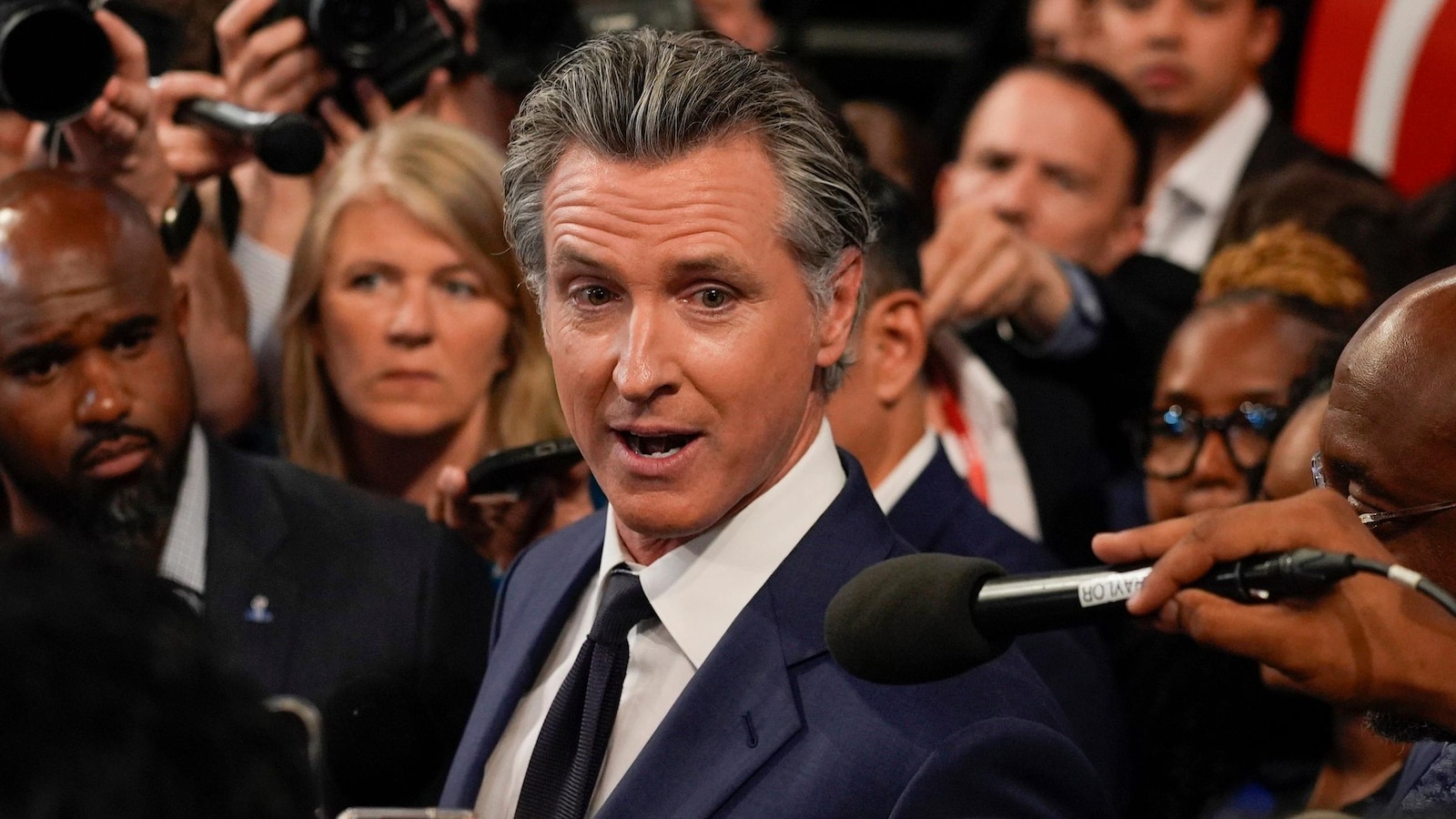
SACRAMENTO, Calif. — Gov. Gavin Newsom on Saturday signed California’s budget to close an estimated $46.8 billion deficit through $16 billion in spending cuts and temporarily raising taxes on some businesses.
Lawmakers passed the budget Wednesday following an agreement between Newsom and legislative leaders in which both sides made concessions and also had wins as they were forced, for the second year in a row, to pare back or delay some progressive policies that had been fueled by record-breaking surpluses during the COVID-19 pandemic.
“This is a responsible budget that prepares for the future while investing in foundational programs that benefit millions of Californians every day,” Newsom said in a statement. “Thanks to careful stewardship of the budget over the past few years, we’re able to meet this moment while protecting our progress on housing, homelessness, education, health care and other priorities that matter deeply to Californians.”
The deficit was about $32 billion in 2023 before growing even bigger this year, with more deficits projected for the future in the nation’s most populous state. Saturday’s signing came just two years after Newsom and Democratic lawmakers were boasting about surpluses that totaled more than $100 billion, the product of hundreds of billions of dollars of federal COVID-19 aid and a progressive tax code that produced a windfall of revenue from the state’s wealthiest residents.
But those revenue spikes did not last as inflation slowed the economy, contributing to rising unemployment and a slowdown in the tech industry that has driven much of the state’s growth. The Newsom administration then badly miscalculated how much money California would have last year after a seven-month delay in the tax filing deadline.
California has historically been prone to large budget swings, given its reliance on its wealthiest taxpayers. But these deficits have come at a bad time for Newsom, who has been building his national profile ahead of a potential future run for president and has been tapped as a top surrogate for President Joe Biden’s campaign.
The budget includes an agreement that Newsom and lawmakers will try to change the state constitution to let California put more money in reserve for future shortfalls.
Republicans, however, said they were left out of negotiations. They criticized the tax increase on businesses, which applies to companies with at least $1 million in revenue and will last for three years, bringing in more than $5 billion extra for the state next year. And they criticized Democrats for some cuts to social safety net programs.
On June 29, 2020, Governor Gavin Newsom of California signed a budget that aims to address the state’s staggering $46.8 billion budget deficit. The budget, which was approved by the state legislature earlier in the month, includes a mix of spending cuts, temporary tax increases, and borrowing to help bridge the gap caused by the economic fallout from the COVID-19 pandemic.
The budget includes $11.1 billion in spending cuts, with reductions to various state programs and services. These cuts are expected to impact education, healthcare, and social services, among other areas. In addition to the spending cuts, the budget also includes temporary tax increases on businesses and high-income earners, as well as borrowing from special funds and reserves.
Governor Newsom acknowledged that these measures are not ideal, but necessary in order to address the unprecedented economic challenges facing the state. He emphasized the need for shared sacrifice and fiscal responsibility in order to protect essential services and programs for Californians.
In a statement, Governor Newsom said, “This budget reflects the tough choices we have to make in order to keep California moving forward during this difficult time. We are facing an economic crisis unlike any we have seen before, and it requires bold action to ensure that we can continue to provide essential services to our residents.”
The budget also includes provisions to address racial and economic disparities exacerbated by the pandemic, including funding for small businesses owned by people of color and investments in affordable housing and healthcare access for underserved communities.
Despite the difficult decisions made in this budget, Governor Newsom remains optimistic about California’s ability to recover from the current crisis. He highlighted the state’s resilience and innovation, as well as its commitment to supporting those most in need during these challenging times.
Overall, Governor Gavin Newsom’s signing of the budget to address the $46.8 billion deficit represents a significant step towards stabilizing California’s finances and ensuring that essential services are protected during this unprecedented economic crisis. It is a testament to the state’s commitment to fiscal responsibility and its dedication to supporting all Californians through these difficult times.


